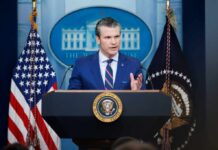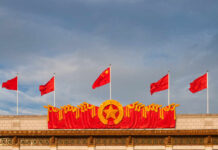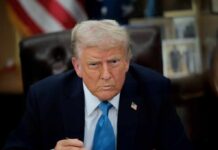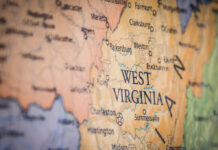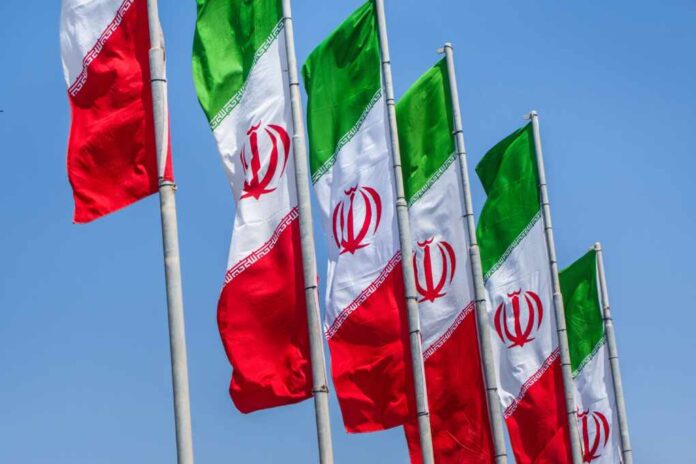
The chilling fatwa issued by Iran’s Grand Ayatollah Naser Makarem Shirazi, calling for President Trump’s assassination, exemplifies a formidable escalating threat that might just redefine global security dynamics.
At a Glance
- Iran issues a fatwa calling for Trump’s assassination.
- Escalates global security concerns with legitimacy to extraterritorial acts.
- Echoes previous fatwa leading to Salman Rushdie’s attack.
- The U.S. responds with pressure policies and strategic alliances.
Iranian Edict: A Grave Prelude
Grand Ayatollah Naser Makarem Shirazi’s recent fatwa targeting President Donald Trump and labeling him as a Mohareb (enemy of Allah) signifies a potent declaration of war. This is not merely rhetoric but signals a call to action, backed by an explicit promise of rewards for harming Trump. Iran’s state media showcased this edict, reflecting an unnerving endorsement from the regime and even the family of Ayatollah Ruhollah Khomeini.
Grand Ayatollah Naser Makarem Shirazi of Iran has issued a fatwa, which is considered a legal ruling on a point of law in Islam, calling for the assassination of U.S. President Donald J. Trump as well as Israeli Prime Minister Benjamin Netanyahu and other senior officials in… pic.twitter.com/Wd86FxtSYZ
— OSINTdefender (@sentdefender) June 29, 2025
The Iranian regime, notorious for its global terror strategies, continues to navigate deceitful diplomacy, sugarcoating its dangerous fatwas as merely cultural expressions. Analysts warn of the possibility of infiltrations by Iranian operatives, ready to act. Such acts, particularly against Trump, echo the government’s broader mission: they reveal a deep disdain for Western governance and an eagerness to project their pan-Islamic agenda aggressively.
Watch a report: Iran’s Top Shia Cleric Issues Fatwa Against Trump, Netanyahu
U.S. & Allies: Countermeasures in Force
“Iranian clerics issuing fatwas against President Trump and other American officials underscores the threat this regime continues to pose to the United States. Iran is the world’s leading state sponsor of terrorism. Its threats are not merely rhetorical but reflect the regime’s relentless mission of exporting its violent Islamist revolution abroad. Congress and the Trump administration must maintain the policy of ‘maximum pressure’ to deprive the ayatollahs of the resources they need to spread terror.” – Alexandria Paolozzi
The Broader Threat Landscape
This fatwa underscores a broader and escalating threat landscape, defining Iran as a terrorist superstate. The fatwa serves both as a symbolic act and a practical call to arms, strengthening Iran’s narrative of jihad against the West, a narrative Iran has historically backed with lethal operations. The inclination towards globalizing terror, underlined by weapons development, nuclear brinkmanship, and state-sponsored assassinations, necessitates robust strategies to neutralize threats domestically and internationally.
“Very Important: This is not just a threat to Iranians — it’s a global danger. A top Iranian cleric has issued a fatwa openly calling for violent jihad against Western leaders, not just Iranian dissidents. This is a clear act of state-backed incitement to international violence.” – Niyak Ghorbani
The silent yet potent presence of Iran’s Supreme Leader, Ali Khamenei, who maintains a shrouded endorsement of violence, along with narratives shared by regime-aligned media, reflect a chilling reality. The world sleeps with one eye open as the Iranian government reiterates its intent to counter perceived adversities through terror, emphasizing the urgency for a united global response.



